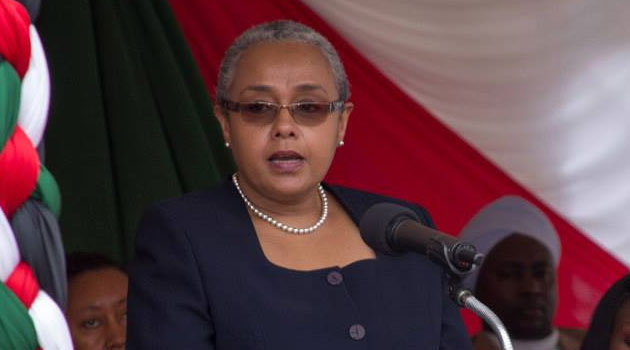
In addressing the importance of engaging the local communities, the First Lady said that the loss of wildlife and natural habitat has been tampered by the diversity of land use practices/FILE
NAIROBI, Kenya, May 18 – First Lady Margaret Kenyatta on Wednesday officially opened the Global Wildlife Program that will look into ways of engaging local communities in wildlife conservation.
In addressing the importance of engaging the local communities, the First Lady said that the loss of wildlife and natural habitat has been tampered by the diversity of land use practices.
Globally, the wildlife population continues to dwindle due to multiple threats. Some of the cross-cutting challenges that need urgent action include increasing human population that is encroaching in the wildlife habitat and dispersal areas, poaching and illegal wildlife trade.
“The continued poaching of important wildlife species is a threat to the country’s economic well-being as it affects the revenues generated from tourism, an important contributor to Kenya’s GDP,” said the First Lady.
“Uncontrolled poaching and illicit wildlife trade therefore bleeds the country’s economy, pushing its population to abject poverty.”
Cases of human wildlife conflict have become rampant over the years in the country with the notable cases being the straying of lions from the National Park.
In recent years, many countries in Africa have experienced prolonged or frequent droughts that have negatively affected wildlife natural habitats.
In Kenya, the degradation of the habitat and scarcity of food further exacerbates human-wildlife conflict.
According to a World Bank report, globally, crime affecting natural resources and the environment inflicts damage on developing countries worth more than $ 70 billion annually.
Among the approaches the government plans to use in engaging the local communities in wildlife conservation include:
” Empowering local people to benefit directly from wildlife resources in turn provides vital incentives to manage them and to protect them from illegal hunting and trade.
” Helping communities to secure and uphold customary tenure rights over access to forest lands and wildlife.
” Building community institutions for resource management.
” Establishing a community led law enforcement linked to the relevant authorities.
Environment Cabinet Secretary Judi Wakhungu who was present said the above mentioned approaches can contribute to both poverty reduction and biodiversity conservation.
The Global Wildlife program involving representatives from 11 countries will run for three days where matters pertaining enhancing environmental law enforcement results, reduction in cost of conservation, poaching, and illegal trade will be discussed.









































